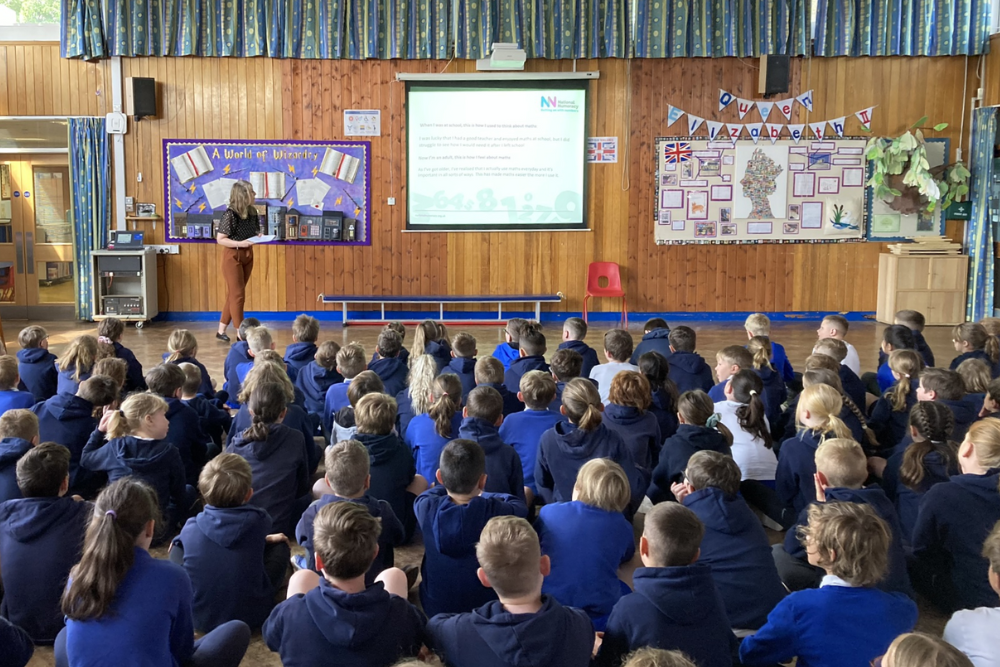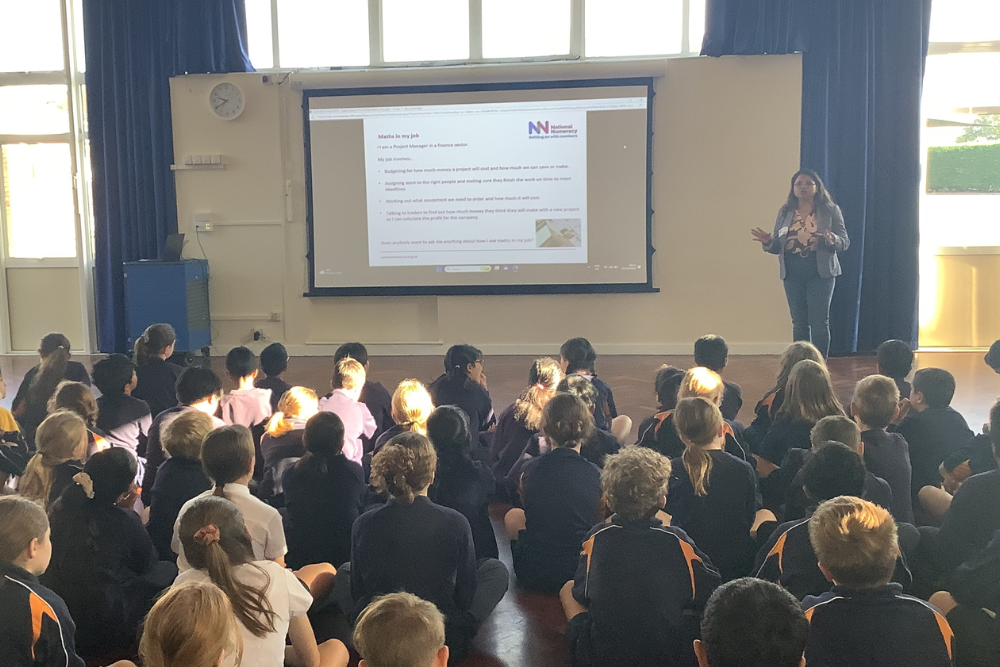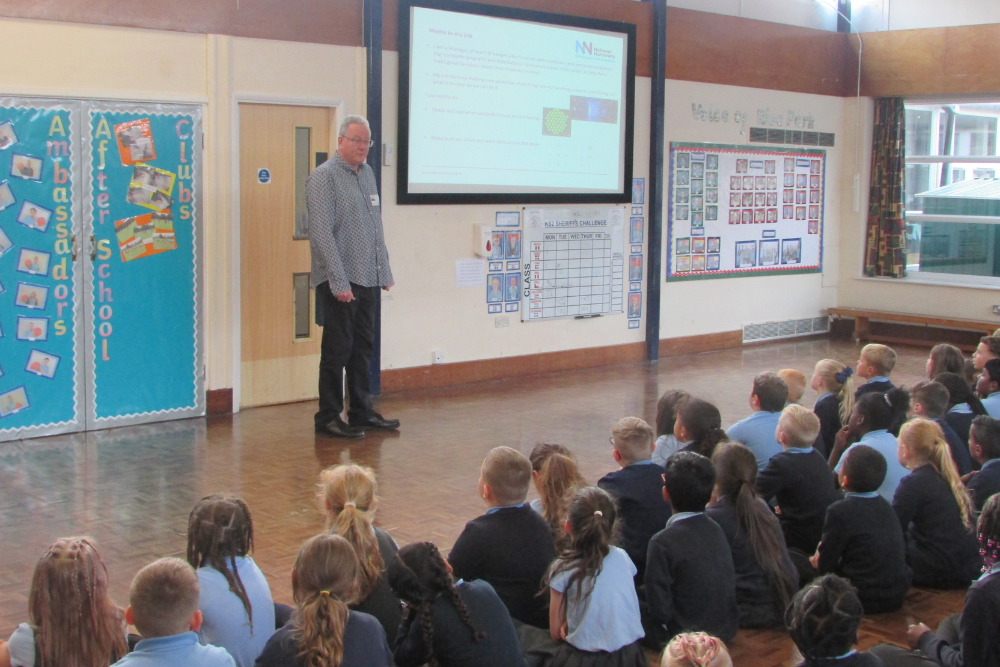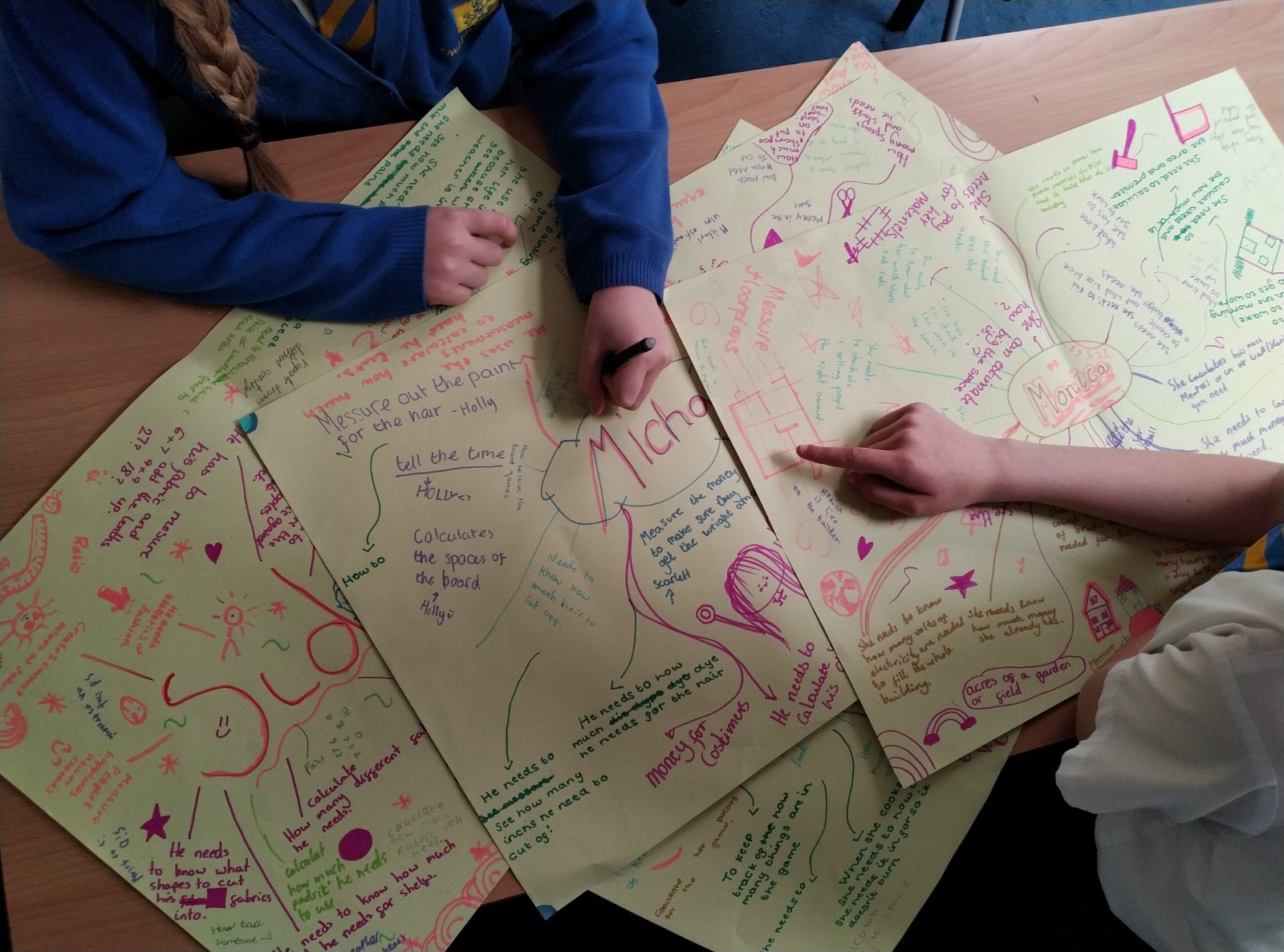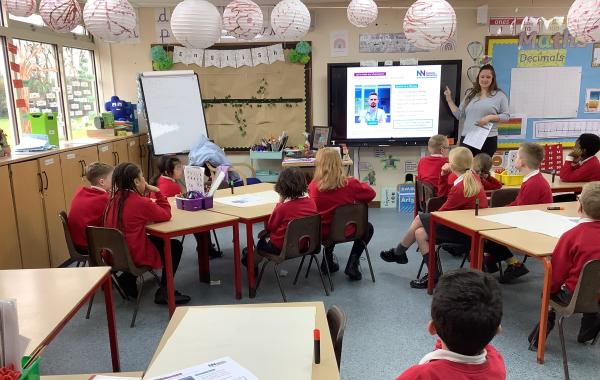As part of National Numeracy's Number Confidence Week celebrations, four of our corporate volunteers spoke to National Numeracy's Chief Executive Sam Sims and Volunteering Manager Laura Hill about their experiences taking part. Thank you to:
- Brogan Roache – Solicitor, Capital One
- Richard Padley – Service Operations Manager, Experian
- Sarika Jaiswal – Project Manager, TP ICAP
- Xiaopei Lockwood – Group Senior Lawyer, Vanquis Banking Group
Why did you volunteer in National Numeracy's programme?
Brogan: I enjoyed maths at school, but struggled seeing how I would use it in a real-world context. But the more I’ve thought about how I use maths, I’ve realised that it really is an everyday, key life skill. I wanted to pass that on to children, to help them realise what I struggled to – that actually we use numbers all the time in so many different ways and often without even knowing!
“It’s massively helped my self-confidence and my presentation skills.” – Brogan Roache, volunteer
Sarika: I enjoyed maths growing up and thought this was the best opportunity for me to spread the word about how it can be enjoyable, and how unknowingly we use maths in our daily life. This volunteering opportunity came to me in an email at work, and I thought: “That’s bang on, I need to do this!”
Richard: I’m a big believer in the importance of maths and numeracy – to both children and adults I think it’s really key. My background is in maths and science, and I use maths significantly in my day job, and I’m really keen to see children get the benefits and an understanding of maths in the real world. So this was a really good programme that really resonated with me.
Xiaopei: I thought it was a great opportunity to get into local schools, to see how maths is being put across to the children of today and get involved.
What have you personally gained by taking part?
Brogan: First and foremost, I’ve had so much fun! I’d like to think I have had a positive impact on the schools and children, and encouraged more positive attitudes toward maths amongst children who might be finding it more difficult. It’s not something I do in my day-to-day job, so going into a classroom has been nerve-wracking but really rewarding and has grown my confidence. And children can be a really honest and unpredictable audience at times!
“Seeing that real-world impact and hearing directly from a child how it’s already changing and shaping their approach to numbers, was really, really rewarding.” – Brogan Roache, volunteer

